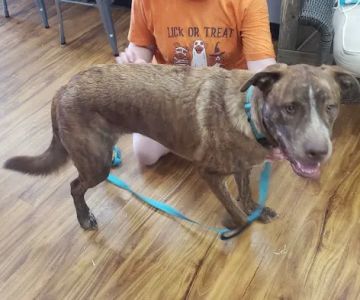- 1. Understanding Pet Anxiety
- 2. Signs of Anxiety in Pets
- 3. Effective Techniques for Managing Pet Anxiety
- 4. Natural Approaches to Anxiety Relief
- 5. Professional Help and When to Seek It
- 6. How Hidden Brook Veterinary Can Help
1. Understanding Pet Anxiety
Pets, just like humans, can experience anxiety. It's important to understand that anxiety in pets can stem from various factors, including changes in their environment, routine disruptions, or past traumatic experiences. Pet anxiety can manifest in both dogs and cats and can lead to behavioral problems if not addressed appropriately. Understanding the root causes of anxiety is crucial for effective management.
2. Signs of Anxiety in Pets
Recognizing the signs of anxiety in your pet is the first step towards helping them. Some common signs include:
- Excessive barking or meowing
- Destructive behavior like chewing furniture or scratching
- Excessive drooling or panting
- Attempts to escape or hide
- Changes in eating or sleeping patterns
- Restlessness or pacing
If you notice any of these signs, it's important to take action and seek out techniques to reduce your pet’s anxiety.
3. Effective Techniques for Managing Pet Anxiety
There are several effective techniques you can use to manage your pet's anxiety. Some of these include:
- Consistent routine: Maintaining a regular schedule for feeding, walks, and playtime helps provide stability and comfort to your pet.
- Calming aids: Products like anxiety wraps, pheromone diffusers, and calming collars can provide immediate relief.
- Training and positive reinforcement: Teaching your pet calming commands and rewarding them for relaxed behavior can be a great way to reduce anxiety.
- Distraction and stimulation: Engaging your pet with toys, puzzle feeders, or interactive games can distract them from anxiety-inducing situations.
4. Natural Approaches to Anxiety Relief
If you're looking for more natural methods to alleviate your pet’s anxiety, here are some alternatives:
- Herbal supplements: Herbs such as valerian root, chamomile, and lavender are known for their calming properties and can help reduce anxiety.
- Aromatherapy: Essential oils, particularly lavender, can have a soothing effect on your pet. However, be sure to consult a vet before using them.
- Massage and calming touch: Gentle massages can help relieve tension in your pet's body, calming them in stressful situations.
It's essential to consult with your veterinarian before trying new treatments, even natural ones, to ensure their safety and effectiveness for your pet.
5. Professional Help and When to Seek It
If your pet's anxiety is severe or persistent, it may be time to seek professional help. A veterinarian can assess your pet's condition and recommend appropriate treatments, including prescription medications or behavior therapy. In some cases, consulting a pet behaviorist can provide additional support in managing severe anxiety.
6. How Hidden Brook Veterinary Can Help
At Hidden Brook Veterinary, we understand how distressing pet anxiety can be for both pets and their owners. Our team of experienced professionals is equipped to offer the best solutions for managing your pet’s anxiety. Whether through behavioral training, natural calming methods, or prescription medications, we tailor our approach to fit your pet’s specific needs. Contact us today to learn more about how we can help ease your pet's anxiety and improve their quality of life.











